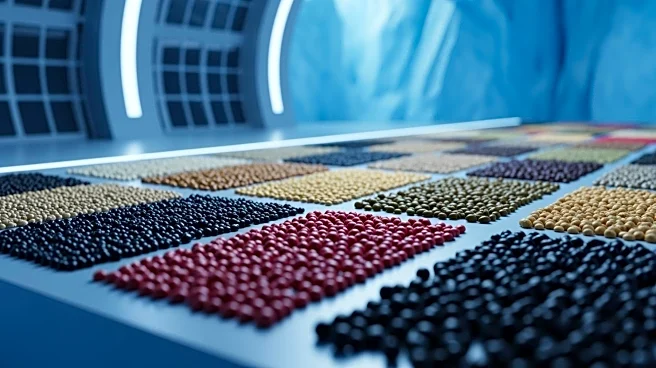What's Happening?
Morocco's National Institute of Agronomic Research (INRA) has deposited over 860 seed samples from its genebank into the Svalbard Global Seed Vault in Norway. This initiative aims to preserve Morocco's unique
crop diversity, which includes landraces and wild species of various crops such as wheat, barley, maize, and aromatic plants. The genebank, located in Settat, has grown rapidly since its inception 22 years ago and now houses over 72,000 samples. These efforts are crucial as Morocco faces challenges like higher temperatures, drought, and land degradation. The genebank collaborates with international partners to enhance research and breeding programs, ensuring the development of climate-resilient crop varieties.
Why It's Important?
The preservation of Morocco's crop diversity is vital for global food security and agricultural sustainability. By safeguarding these genetic resources, the genebank supports breeding programs that can develop new crop varieties capable of withstanding climate change. This initiative not only benefits Morocco but also contributes to international efforts to maintain biodiversity and improve crop resilience. The collaboration with global partners like the International Center for Agricultural Research in the Dry Areas (ICARDA) enhances the genebank's capacity to share and utilize genetic resources, fostering innovation in agricultural practices worldwide.
What's Next?
INRA is constructing a new National Center for Genetic Resources in Rabat, which will consolidate Morocco's collections of crops, livestock, and microorganisms. The Settat genebank will continue to serve as the main hub for distributing crop diversity while preparing a copy of its collections for long-term safeguarding in the new center. As environmental challenges persist, the genebank's role in supporting sustainable agriculture and food security will become increasingly critical.









